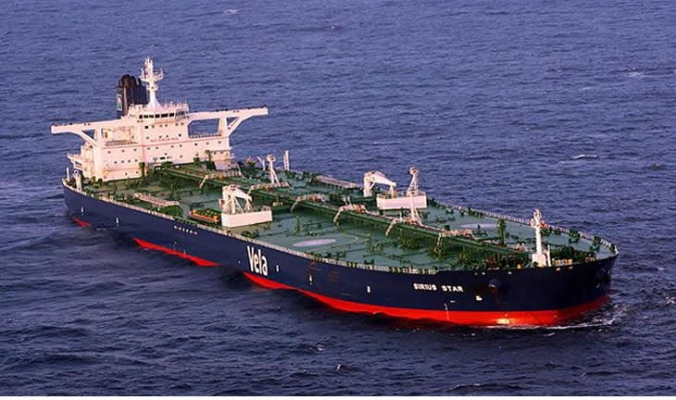Angola: Angola joins Nigeria to increase price of oil
2015/12/09

The presidents of Angola and Nigeria have agreed on joint cooperation in seeking to reverse the trend in the price of oil per barrel on world markets, the international press reported.
The heads of national of the two major sub-Saharan oil producing nations, José Eduardo dos Santos of Angola and Nigeria’s Muhammadu Buhari, held a conference on the sidelines of the 6th edition of the China/Africa Forum.
Both presidents said it did not make sense to sell additional oil for less money and called for a new consensus part oil producing nations to increase the price per barrel.
The two Presidents recognised the great dependence of their economies on oil and decided that the oil ministers of both nations will meet urgently in order to decide a joint action platform.
However, the Organization of Petroleum Exporting Nations (OPEC), conference Friday in Vienna, decided to increase production from 30 million to 31.5 million barrels per day oil in order to reflect the real production of member nations, according to financial news agency Bloomberg.
The new limit does not include Indonesia’s production, which returned to OPEC next a seven-time“separation”.
The markets reacted instantly to the production increase with the US benchmark oil price– “West Texas Intermediate” – falling 3.1 % Friday to US$39.81 a barrel. (
- Related Articles
-
Portuguese-speaking Africa awaits arrival of large Chinese industrial investments
2016/06/04 Support from China for the industrialisation of Angola and Mozambique has been set as an objective on a government level, as large investments in local production capacity, even additional necessary at a time of economic difficulties, are presently expected. The Forum for China-Africa Cooperation (FOCAC) held in December 2015 in Johannesburg set the goal to shift Chinese industries to Africa, a subject that was discussed once again during the recent visit by Mozambican president, Filipe Nyusi, to Beijing, inclunding at the same time as his Angolan counterpart was in Beijing. -
Angola’s has estimated population of 25.78 million
2016/05/17 The Angolan people is estimated to total 25,780,000 people, according to the final data of the General People and Housing Census conducted in 2014, said Thursday in Luanda the director general of the National Statistics Institute (INE). Camilo Ceita as well said that of that number 13,280,000 are women, representing 52 % of the total, and 12.49 million are men, equivalent to 48 %. -
Routes Africa forum aims to improve African air connectivity
2016/05/15 An event dedicated to the development of the African aviation industry will take place next month in Tenerife (26-28 June) to encourage the launch of new air services to, from and within the African continent. Routes Africa 2016 will help to improve African connectivity by bringing together airlines, airports and tourism authorities to discuss next air services. Around 250 route development professionals are expected to attend the forum which was founded ten years ago to stimulate increase in the industry. -
While Europe is on the verge of breaking up, Africa is reaping the benefits of integrating, growing and developing its trading blocks
2016/05/13 The collapse of virtual borders is one of the majority remarkable things to have happened in our lifetimes. In the world of cyberspace, time and distance have become almost peripheral considerations at the same time as it comes to doing business. Services from software development to accounting can be delivered across the world in the blink of an eye. Next business leaders will struggle to imagine an era at the same time as communication was neither immediate nor virtually free. -
Africa’s economic growth is likely to be slower in the intervening years
2016/05/12 Africa’s economic increase is likely to be slower in the intervening years than in the before decade, according to the new rating by Ernst & Young using a barometer to gauge the level of appeal and success.“The baseline projection of the International Monetary Fund (IMF) for 2016 is presently reduced to 3%, while it was estimated at 6.1% in April 2015″, Ernst & Young points out in its rating.
-
- Angola News
-
- CHINA: Support from China for the industrialisation of Angola and Mozambique
- ANGOLA: Angola’s has estimated population of 25.78 million
- BOTSWANA: Routes Africa forum aims to improve African air connectivity
- BOTSWANA: Economic integration is helping boost trade and investment in Africa
- BOTSWANA: Africa’s economic growth is likely to be slower in the intervening years
- BOTSWANA: Beyond Commodities: How African Multinationals Are Transforming
- Trending Articles
-
- BOTSWANA: Routes Africa forum aims to improve African air connectivity
- CHINA: Morocco and China sign $1.54bn currency swap agreement
- TANZANIA: Tanzania Breweries now partners with traditional liquor outlet owners
- BELGIUM: From Brussels to Dresden
- THAILAND: Foreign investment plummets in junta ruled Thailand
- SERBIA: China’s Xi sees Serbia as milestone on new ‘Silk Road’




.gif?1356023993)




